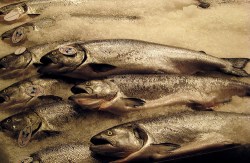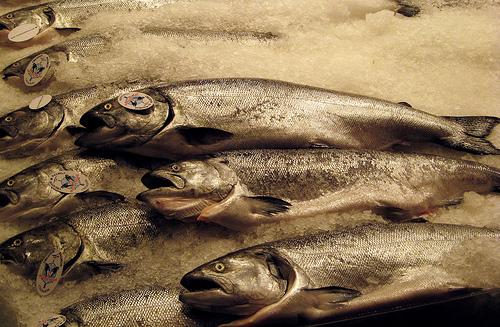
Sharon MollerusThis is, like, swordfish or something.
Rep. Ed Markey (D-Mass.) is trying, once again, to take the fishy business out of the fish business.
Seafood diners and shoppers often have no idea what type of fish they’re actually buying. A stomach-turning investigation unveiled last month by nonprofit Oceana found that about a third of fish tested around the U.S. were mislabeled. A separate investigation by The Boston Globe found that 76 percent of samples from restaurants and markets in Massachusetts were mislabeled — and that was after the Globe had caught those same sellers mislabeling previously.
So Markey has taken an old bill off ice after it went nowhere last year, tightened up some of its language, and reintroduced it.
“This bill finally tells the seafood swindlers and fish fraudsters that we will protect America’s fishermen and consumers from Massachusetts to Alaska,” Markey, who’s currently running to fill John Kerry’s old Senate seat, said in a press release:
To prevent seafood fraud, Rep. Markey’s SAFE Seafood Act, formally the Safety and Fraud Enforcement for Seafood Act, requires information that is already collected by U.S. fishermen — such as species name, catch location, and harvest method — to ‘follow the fish,’ and be made available to consumers. It also requires foreign exporters of seafood to the United States to provide equivalent documentation.
The bill also expands the ability of the Food and Drug Administration (FDA) and the National Oceanic and Atmospheric Administration (NOAA) to refuse entry of unsafe or fraudulent seafood shipments, and allows NOAA to levy civil penalties against violators under the Magnuson-Stevens Fishery Conservation and Management Act.
Sounds pretty good. But Markey is currently in the minority in the House, and Congress is dysfunctional to the point of paralyzation, so don’t expect the bill to go anywhere fast.



